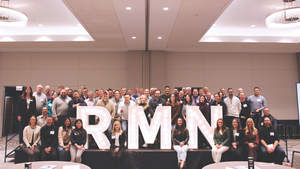Hy-Vee Cuts Remodel Costs
ATLANTA — Hy-Vee has been able to reduce construction costs for new and remodeled stores by 25% over the past six years and cut as much as three months out of construction time by leveraging its relationship with Hy-Vee Weitz, its in-house construction and general contractor company. Hy-Vee Weitz, a subsidiary of West Des Moines, Iowa-based Hy-Vee, was formed in 1995 as a joint venture between Hy-Vee
September 26, 2011
MICHAEL GARRY
ATLANTA — Hy-Vee has been able to reduce construction costs for new and remodeled stores by 25% over the past six years and cut as much as three months out of construction time by leveraging its relationship with Hy-Vee Weitz, its in-house construction and general contractor company.
Hy-Vee Weitz, a subsidiary of West Des Moines, Iowa-based Hy-Vee, was formed in 1995 as a joint venture between Hy-Vee and Weitz Construction, Des Moines. In the past few years Hy-Vee has more proactively collaborated with Hy-Vee Weitz to streamline the construction process, according to Hy-Vee executives who spoke about the relationship last week at the Food Marketing Institute's Energy & Store Development Conference in a session called “Hy-Vee's Innovative Construction Process.”
“We just completed a project that's going to open Nov. 1,” said Jeff Markey, assistant vice president, engineering/construction for Hy-Vee. As a result of a series of collaborative projects undertaken with Hy-Vee Weitz, “we've taken almost three months out of the schedule,” he said. “We're seeing the fruit of these labors, not just in the pre-construction side but in the construction side as well.” Overall, the partnership has reduced Hy-Vee's construction time from 11 months to 8½ months, expediting store openings, he said.
Operating a dedicated general contractor company rather than bidding out the role for individual projects is fairly rare in the food retailing business. Giant Eagle, Pittsburgh, is another regional chain that takes a similar approach, according to an executive from the company attending the session.
And while Markey and his co-speaker, Jeff Scandrett, project manager for Hy-Vee Weitz, pointed out the benefits of having a construction subsidiary, a number of audience members questioned them about whether Hy-Vee Weitz was run like a conventional construction firm intent on driving down costs and making a profit.
Hy-Vee, which operates 235 stores in the Midwest, is “large enough to have our own construction company but small enough that one construction company can handle us,” Markey said. The projects overseen by Hy-Vee Weitz are at least $1 million in scope, and average about $6 million. Most store designs originate in Hy-Vee's corporate engineering department.
Having an in-house construction firm helps to “eliminate owner/architect/contractor communication barriers” often seen in the construction industry, Markey noted. “We're a team; this isn't just another general contractor we're going to bid out and go to the next one.”
The ongoing communication between Markey's engineering department and Hy-Vee Weitz's construction team includes discussing decisions made by the latter to subcontract particular construction jobs.
Markey acknowledged, however, that over the course of Hy-Vee's relationship with Hy-Vee Weitz “there have been bumps in the road until they got acclimated to us and we got acclimated to them.”
Asked whether Hy-Vee Weitz is a cost-center or a profit center, Markey replied that it's a “subsidiary with a profit center. They get paid a fee.” Part of Hy-Vee Weitz's compensation is based on the evaluation of a project given by Markey and other Hy-Vee executives, and a percentage of bonuses is tied to cost savings. Hy-Vee Weitz is expected to operate “at market” in its expenditures, he said. “But first and foremost is what is in the best interest of Hy-Vee and its stores.”
Scandrett described several examples of stepped-up collaboration between Hy-Vee's design and engineering team and Hy-Vee Weitz. In one case, they focused on the period in which construction documents are being finalized, and discovered they could improve the permitting process, particularly in large cities like Kansas City. “There are companies you can hire that will actually handle the permit process for you,” he said. “In that case we can save three weeks.”
In another example, Hy-Vee decided in certain projects to pursue “roof structure panelization,” in which roof panels are constructed at six feet off the ground rather than 25 feet, speeding up construction by about two weeks and improving safety.
In developing the roof panelization program, Hy-Vee reached out to construction workers.
Unlike a traditional general contractor, which would leave a store with a one-year warranty, Hy-Vee Weitz conducts surveys of a new store three, six, nine and 11 months after it opens.
Scandrett contrasted Hy-Vee Weitz's approach to a more traditional contractor. “Before I came to Hy-Vee Weitz so much time was spent on contract verbiage to make sure you wouldn't get sued,” he said. “That's all gone. That time is spent on running more projects, value analysis and figuring out a better way to do things.”
About the Author
You May Also Like






